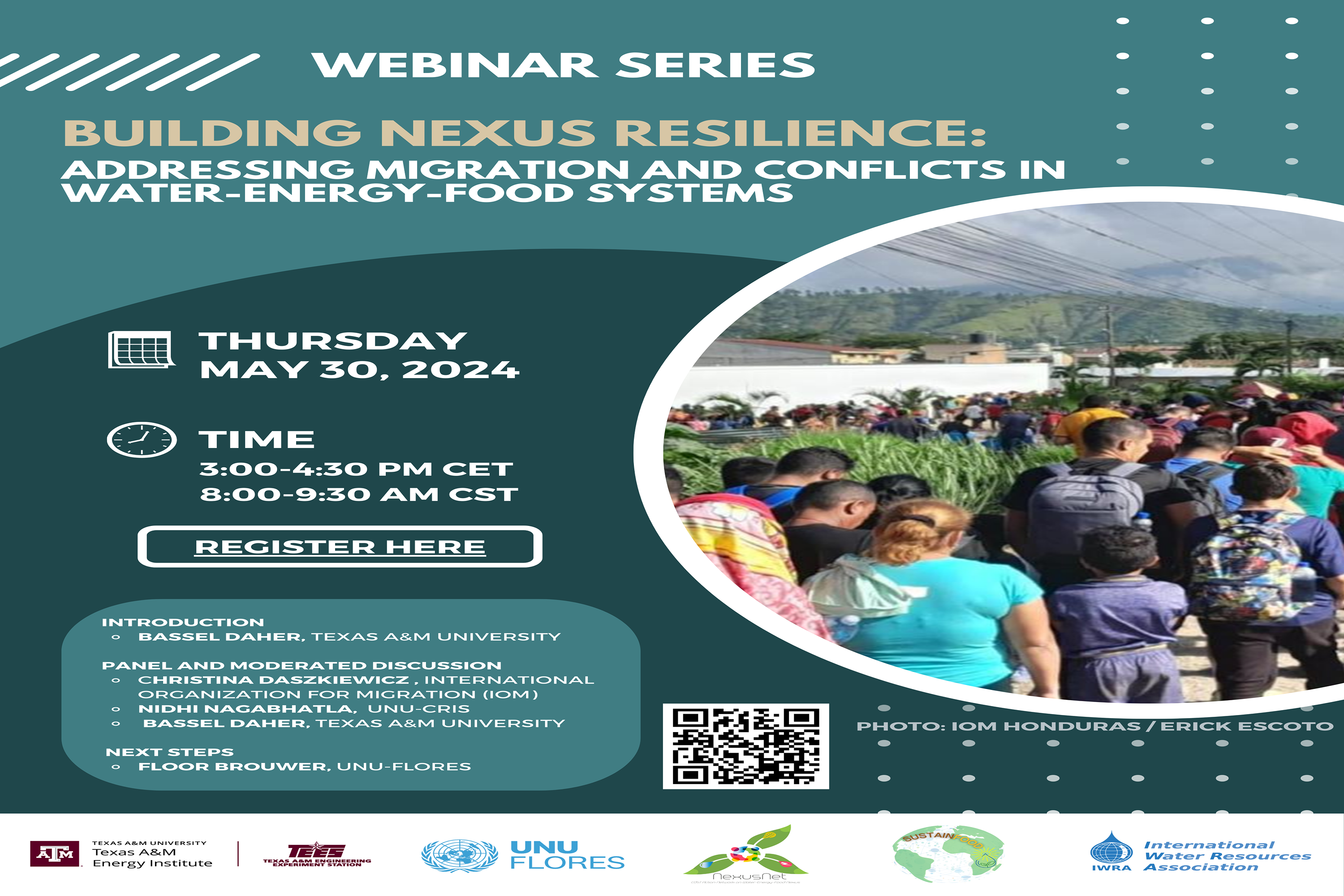The session aims to catalyze cross-disciplinary, cross-institutional, and international dialogues toward understanding the knowledge gaps and opportunities in taking a holistic, systems approach to addressing these tightly interconnected challenges relate.
- flood | drought | sustainable agriculture | water policy | water
- Thursday 30 May 2024, 09:00 - 20:00 (CEST)
- Online only
- Live streaming available
- Country
- Germany
Practical information
- When
- Thursday 30 May 2024, 09:00 - 20:00 (CEST)
- Where
- Online only
- Languages
- English
- Part of
- Website
- Event website
- Social media links
Description
The 2030 Agenda for Sustainable Development recognizes the intricate interdependencies among these resource systems, but their complex relationships with migration (forced, economic, rural-urban, internal, external) remain insufficiently addressed.
Understanding the connections between migration and key environmental resources (e.g., water, energy, and food) and how resource scarcity influences migration needs further study.
Existing nexus models often fail to capture the nuanced interplay with conflicts and migration. Nexus communities from across the globe (e.g., North America, Africa, and Europe) search for better tools to understand these trends and interconnections and guide anticipatory action toward improving the resilience of communities facing these pressures.
Moreover, there is a need to understand the impact of the various underlying conditions and vulnerabilities on amplifying disaster risks related to water, energy, and food systems that lead to migration.
Also, connecting the vulnerability and resilience of resource systems (primarily water, energy, and food) with the nexus still need to unravel solutions for long-term sustainable development.
The webinar series is aimed to fill this gap. Following an introduction to the webinar (Bassel Daher, Texas A&M University), the panel includes three moderated discussions with Christina Daszkiewicz (International Organization for Migration, IOM), Nidhi Nagabhatla (UNU-CRIS) and Bassel Daher (Texas A&M University). The next steps will be outlined by Floor Brouwer (UNU-FLORES).

